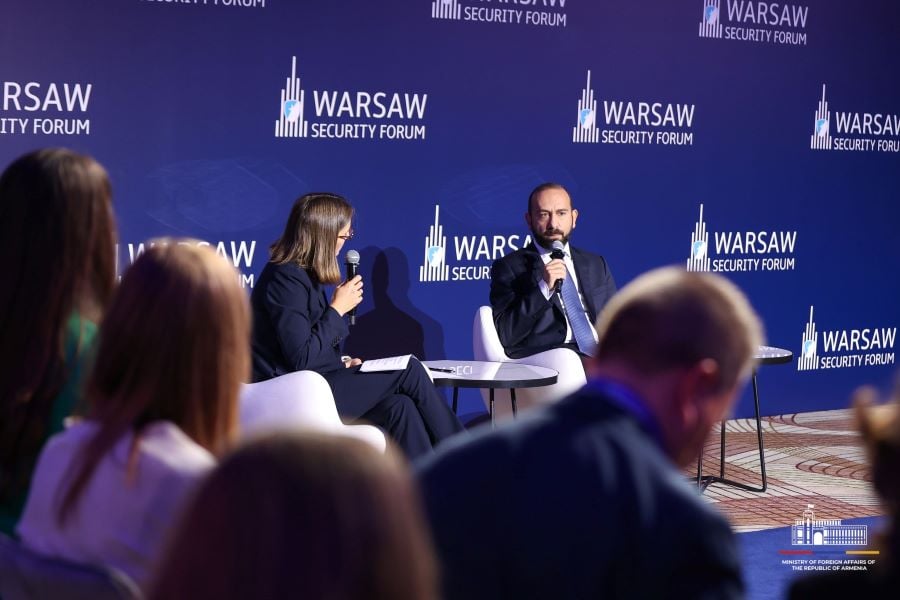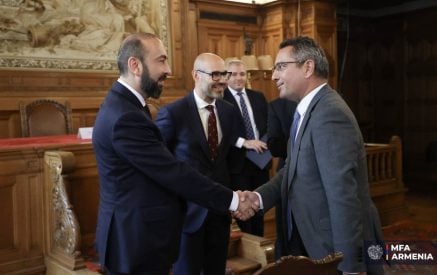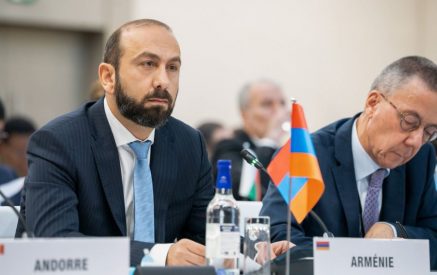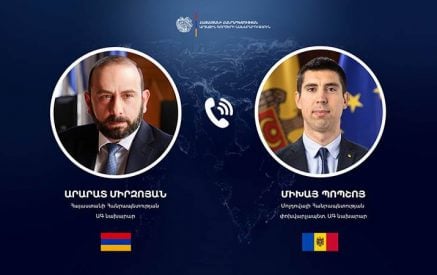As part of the Warsaw Security Forum, the Minister of Foreign Affairs of the Republic of Armenia, Ararat Mirzoyan, took part in a high-level discussion on the topic, “World Order and Democracy: A Roadmap for the South Caucasus.”
Anja Wehler-Schock: Since we are talking about global order, let’s start off with a very current development-related topic. Iran, a neighboring country to Armenia, fired more than a hundred rockets on Israel last night. Are you concerned that there will be a regional war and what would be the implications for your country?
💬 Ararat Mirzoyan: Good morning everyone. It’s a pleasure to be here and I’m looking forward to an interesting discussion. The very first question was quite a tough one, I should confess. If you follow the general geopolitical situation, the trends, and the policies in the South Caucasus, we in Armenia, we do our best to achieve peace in our region and here we see that some other countries in larger neighborhoods strike each other with missiles. Of course, we are concerned. Of course, we cannot encourage or welcome any escalation, we can only hope that this conflict finds its soonest possible settlement.
🎤 Anja Wehler-Schock: Let’s zoom in a little bit. The conflict around the Karabakh region has been a driver of conflict between Armenia and Azerbaijan for decades and little more than a year ago, following the offenses by Azerbaijan more than 140.000 people were displaced and found refuge in Armenia. How has Armenia managed to take in this massive influx of people?
💬 Ararat Mirzoyan: Well, first, in terms of only receiving the refugees, displaced population of Nagorno Karabakh, it was a huge challenge. I think, for any government in the world, it is quite a challenge to receive more than 140.000 refugees in 2-3 days. We did our best to meet the immediate needs of these people, give them shelter, food, and some essential things. Of course, we applied to the assistance of the international community and we appreciate all the assistance we achieved. Now, it is time for the next stage I would say, we need to somehow satisfy and meet the mid-term and longer-term needs and first of all, here I’m speaking about the housing problem but also employment and bigger efforts would be needed here. Our policy is that if there is no means, no possibility, no opportunity for these people to go back to their homes, then our policy is to make every possible effort to ensure that these people are integrated in the society of the Republic of Armenia, they find the job and build new homes in our country and stay in Armenia.
🎤 Anja Wehler-Schock: “How has this development impacted your government’s efforts to democratization in Armenia?”
💬 Ararat Mirzoyan: “Well, not only this influx of refugees but roots of this issue, I mean attack of Azerbaijan, it happened in 2023 but the whole story started in 2020 when war was launched by Azerbaijan against Nagorno Karabakh, and then in the course of the war and during the aftermaths Azerabaijani forces entered and invaded also into the sovereign territories of the Republic of Armenia, this is the whole story. Of course, in this situation many in Armenia came up with the questions, and they started questioning the efficiency of democracy. Interestingly, the questions were the following: “Okay, democracy is probably good internally for the prosperity of people, etc but whether democracy is able to ensure our security as well?”.
So, after the war which I spoke about, a series of internal crises emerged in the Republic of Armenia and to give some solution to this situation we decided to have snap parliamentary elections. We had a snap parliamentary election in 2021 and democracy was among the main things which was discussed during the electoral campaign. Well, fortunately, the political party that was lobbying for democracy, my political party, won the elections and formed the government. This means that the citizens of Armenia supported 2 things: first of all, the peace agenda of the government and also the further democratization of the country.”
Read also





























































